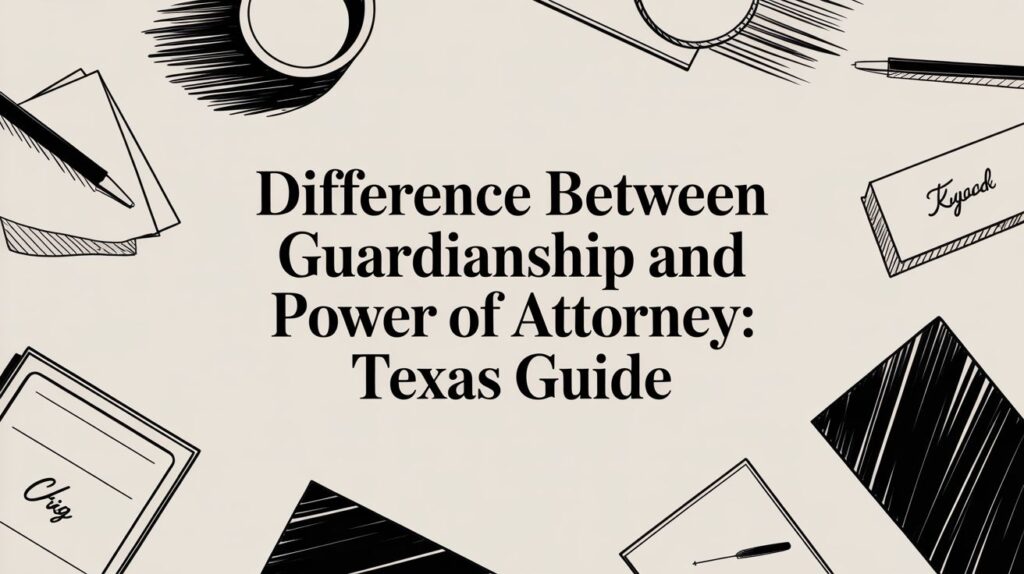Managing the probate process for Texas vacation homes with a time-share agreement can be a daunting task. Unlike traditional real estate, time shares involve unique legal and financial obligations, which often complicate estate management. Whether you are an executor, beneficiary, or legal representative, understanding the nuances of Texas probate law and the specifics of time-share agreements is essential. This guide offers a detailed, step-by-step approach to handling this process effectively, ensuring compliance with all legal requirements and minimizing potential challenges.
What is Probate?
Probate is the legal process of administering a deceased person’s estate. It ensures the proper distribution of assets to heirs and the settlement of any debts. In Texas, probate law offers streamlined processes compared to other states, including independent administration, which allows executors to manage estates with minimal court involvement. However, the process can become more intricate when dealing with unique assets like time shares.

How Texas Probate Differs from Other States
Texas is known for its probate-friendly environment, offering several options to simplify estate administration:
- Independent Administration: This allows executors to handle most aspects of probate without extensive court oversight. It is often less time-consuming and less costly.
- Small Estate Affidavit: Estates valued under $75,000 (excluding homestead property) may avoid full probate.
- Muniment of Title: This streamlined process can be used when there are no debts, other than those secured by real property, and there is a valid will.
However, not all assets qualify for simplified probate procedures, and time shares often require special consideration due to their unique nature.
What Makes Time Shares Unique in Probate?
Time shares are a hybrid form of property ownership. Unlike traditional real estate, time shares grant individuals specific usage rights for a set period. This distinction creates several challenges in probate:
- Shared Ownership Structure: Most time shares involve fractional ownership or usage rights shared among multiple owners.
- Ongoing Financial Obligations: Maintenance fees, special assessments, and taxes continue after the owner’s death, often creating financial burdens for the estate or heirs.
- Transfer Restrictions: Many time-share contracts include stipulations that limit how ownership can be transferred or inherited.
Understanding these unique characteristics is essential for successfully navigating probate involving a time share.

Types of Time-Share Ownership in Texas
The type of ownership directly affects how a time share is handled in probate. Common types include:
- Deeded Ownership
- The owner holds a legal title to the property, similar to traditional real estate.
- This type of ownership typically requires probate to transfer the deed to heirs.
- Right-to-Use Agreement
- The owner has the right to use the property for a specific period each year but does not own the property outright.
- Right-to-use agreements are considered personal property, which may simplify the probate process.
- Points-Based Systems
- Owners purchase points that can be used to book stays at various properties within a network.
- Points systems often operate under contracts that outline how ownership is transferred, if at all.
- Deeded Ownership
Each type of ownership presents distinct legal and procedural requirements during probate.
Steps to Handle Probate for Time Shares in Texas
1. Identify and Review the Time-Share Agreement
Begin by gathering all documentation related to the time share, including:
- The original purchase agreement.
- The time-share contract or deed.
- Statements of account for maintenance fees or outstanding balances.
Carefully review these documents to understand the ownership structure, financial obligations, and transfer requirements.
2. Determine Whether Probate Is Necessary
Not all assets require probate. In Texas, probate is typically necessary if the time share is deeded property. However, alternatives may apply in specific circumstances:
- Joint Ownership with Right of Survivorship: If the time share was jointly owned with a survivorship clause, it may pass directly to the surviving co-owner.
- Trust Ownership: If the time share was placed in a trust, probate may not be required, as the trust dictates asset distribution.
If probate is required, proceed with filing the necessary paperwork.
3. Initiate the Probate Process
A. File the Will and Application for Probate
- Submit the deceased’s will (if one exists) and an application for probate in the appropriate Texas probate court.
- The correct venue is usually the county where the deceased resided or where the time-share property is located.
B. Appoint an Executor or Administrator
- The court will formally appoint an executor (if named in the will) or an administrator (if no will exists). This individual is responsible for managing the estate, including the time share.
4. Notify the Time-Share Company
Inform the time-share management company of the owner’s death. Provide them with:
- A copy of the death certificate.
- Letters of administration or testamentary, proving the executor’s authority.
Most companies will freeze the account to prevent penalties for unpaid fees while probate is underway.
5. Inventory the Estate
The executor must prepare a detailed inventory of all assets, including the time share. Key considerations include:
- The market value of the time share, which may require a professional appraisal.
- Any unpaid fees, mortgages, or special assessments associated with the time share.
6. Settle Debts and Taxes
Before distributing assets to heirs, the estate must settle all liabilities, including:
- Time-share maintenance fees and taxes.
- Any remaining mortgage or loan balances tied to the property.
Failure to address these obligations can lead to legal complications for the estate and beneficiaries.
7. Transfer Ownership or Dispose of the Time Share
Once debts are settled, the time share can be:
- Transferred to Heirs: If beneficiaries wish to retain the property, the executor must follow the transfer procedures outlined in the time-share agreement.
- Sold: Selling a time share can be challenging due to a limited resale market. Executors may need to work with time-share resale agencies or specialized real estate agents.
- Surrendered: Some time-share companies offer surrender programs, allowing owners to return the property in exchange for a fee.
Common Challenges in Probate for Time Shares
1. Disputes Among Heirs

Beneficiaries may disagree on whether to retain, sell, or surrender the time share. Clear communication and mediation can help resolve conflicts.
2. Diminished Market Value
Time shares often depreciate, making it difficult to sell them at a reasonable price. Executors may need to consider alternative options like donation or negotiated buy-back programs.
3. Cross-State Jurisdiction Issues
If the time share is located in a different state, ancillary probate may be required, adding another layer of complexity.
Preventative Measures for Future Probate
To simplify estate management for heirs, consider taking proactive steps:
- Incorporate the Time Share Into Estate Planning: Clearly outline your wishes in a will or trust.
- Establish Joint Ownership: Adding a co-owner with survivorship rights can allow the property to bypass probate.
- Explore Transfer-on-Death Deeds: These deeds enable direct transfer of ownership upon death, avoiding probate.
Legal and Professional Assistance
Given the complexities of time shares in probate, seeking professional guidance is highly recommended:
- Probate Attorneys: Experienced attorneys can navigate the legal intricacies of Texas probate law and time-share agreements.
- Financial Advisors: Advisors can help assess the financial implications of retaining or disposing of the time share.
- Real Estate Specialists: Professionals with expertise in time-share resales can assist with valuation and marketing efforts.
Probate in Texas: Estate Administration ExplainedConclusion
Handling probate for Texas vacation homes with a time-share agreement requires careful attention to legal, financial, and contractual details. By following the steps outlined in this guide, you can navigate the process effectively, ensuring compliance with Texas law and honoring the wishes of the deceased. For complex situations, consulting legal and financial professionals can provide invaluable support, helping you achieve a resolution that best serves all parties involved.








